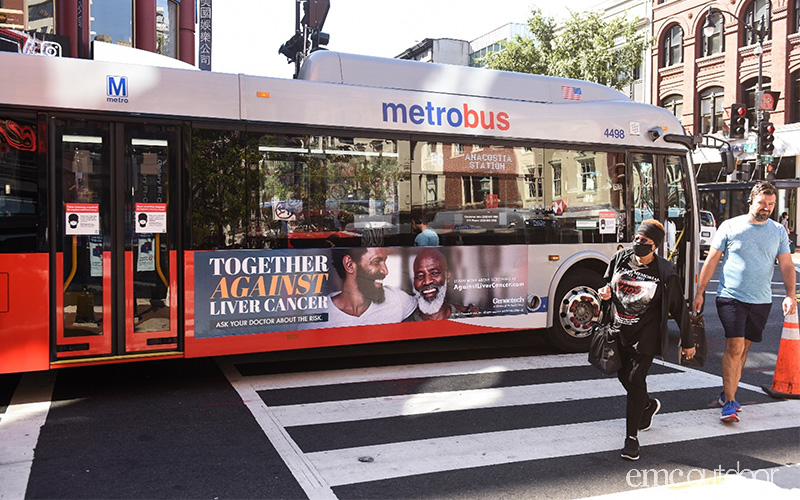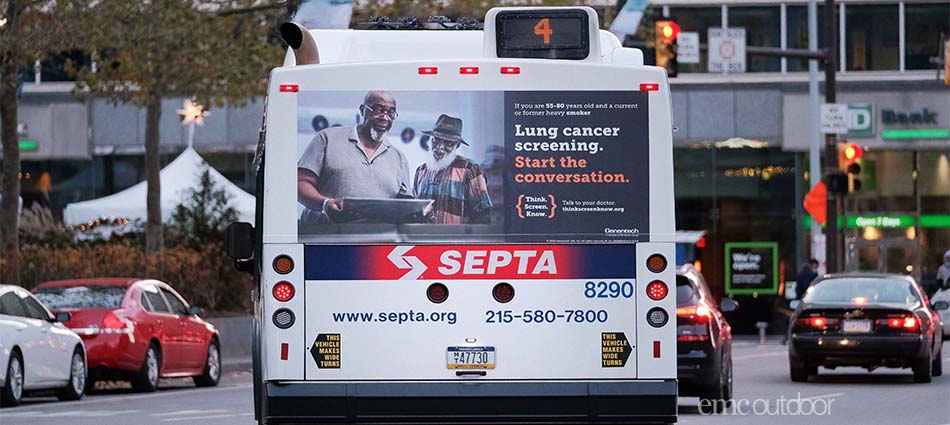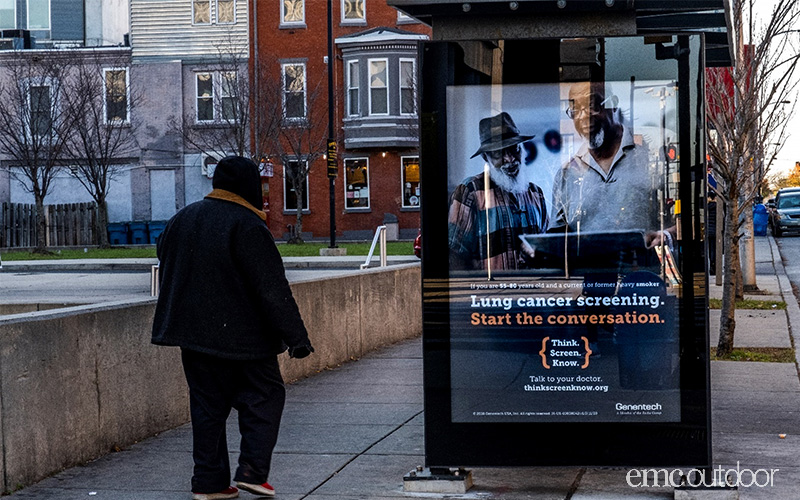Lung and liver cancer are becoming two of the most common cancers worldwide. With lung cancer being the second most common and liver being the sixth, early diagnosis and intervention are crucial since symptoms can be dormant until later stages. This is especially problematic in underserved communities. Data shows that African American men have higher lung and liver cancer rates than other racial/ethnic groups. Genentech set out to change that with Out of Home.

Their campaigns “Together Against Liver Cancer” and “Think Screen Know” aimed to raise awareness of these cancers among families and individuals who may be at risk and to prompt action to speak to their doctor about screenings. The campaign was activated in multiple underserved communities around the country. The primary target audience was African American men ages 55-80 and those who formerly or currently smoke.

Transit shelters and public transit bus wraps were utilized in highly targeted locations running through the city for riders and areas with substantial foot traffic. Traditional billboards were strategically placed near entrances to those underserved communities and neighborhoods with a higher population of people with an increased risk of developing lung and liver cancer.
The powerful imagery depicted underserved families and loved ones being together to start a conversation with their doctor. Their outdoor activation also directed individuals to their website to learn more about screening options, risk factors, and questions to ask your doctor.

This activation gained immense attention locally and regionally. Data has shown that there has been an increase in screenings even throughout the COVID-19 pandemic with stay-at-home orders. Highly targeted Out of Home activations backed by a compelling message can go beyond measurable impressions. In addition to advertising, Out of Home can also perform a service. Encouraging individuals to pay attention to their health and their loved ones, especially in underserved communities, where public health may not always be a central concern.



